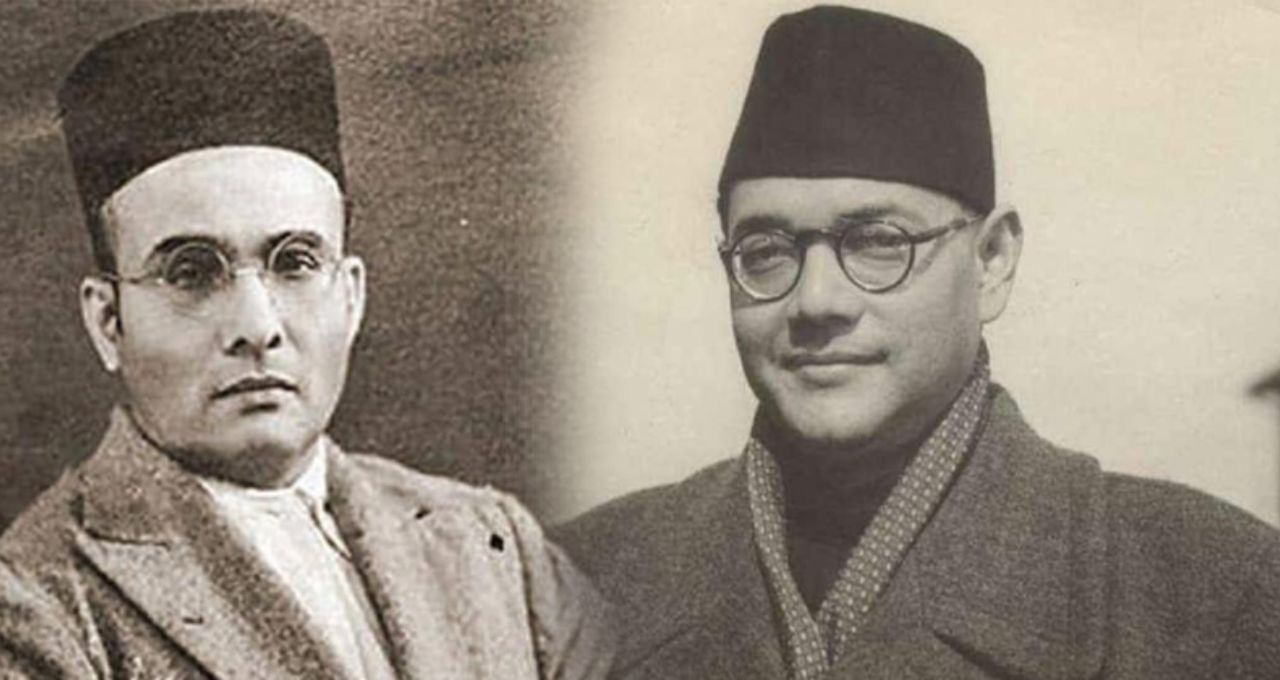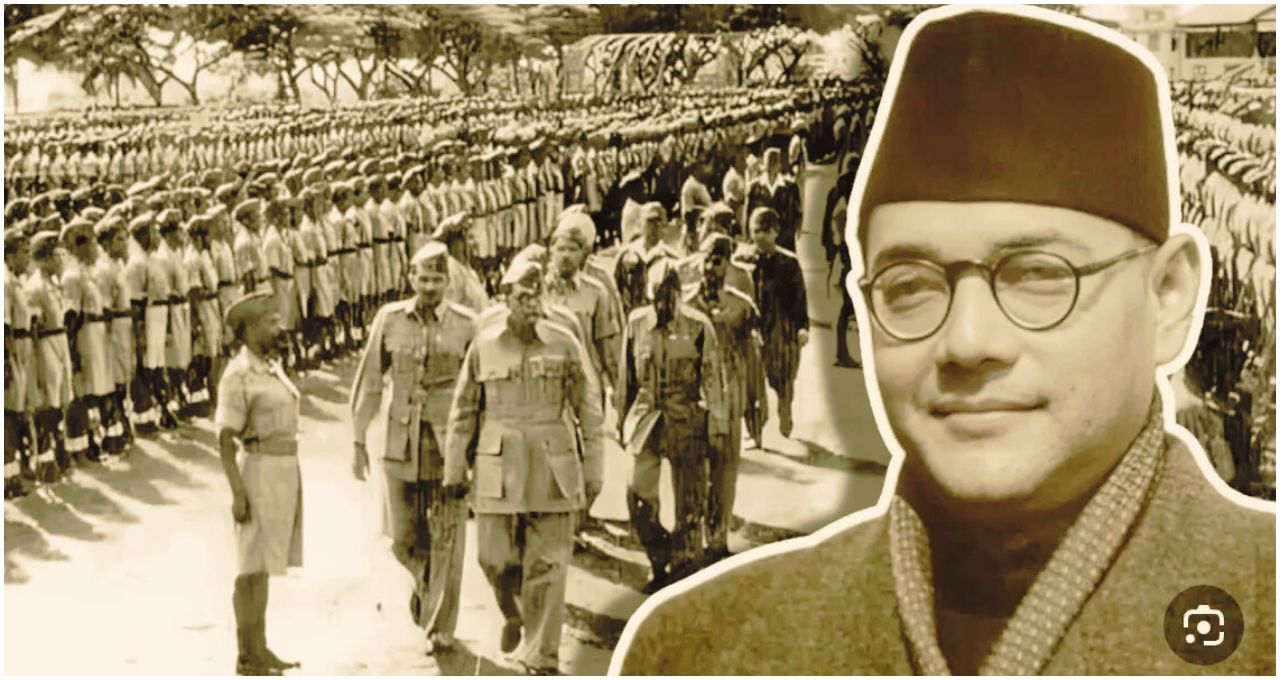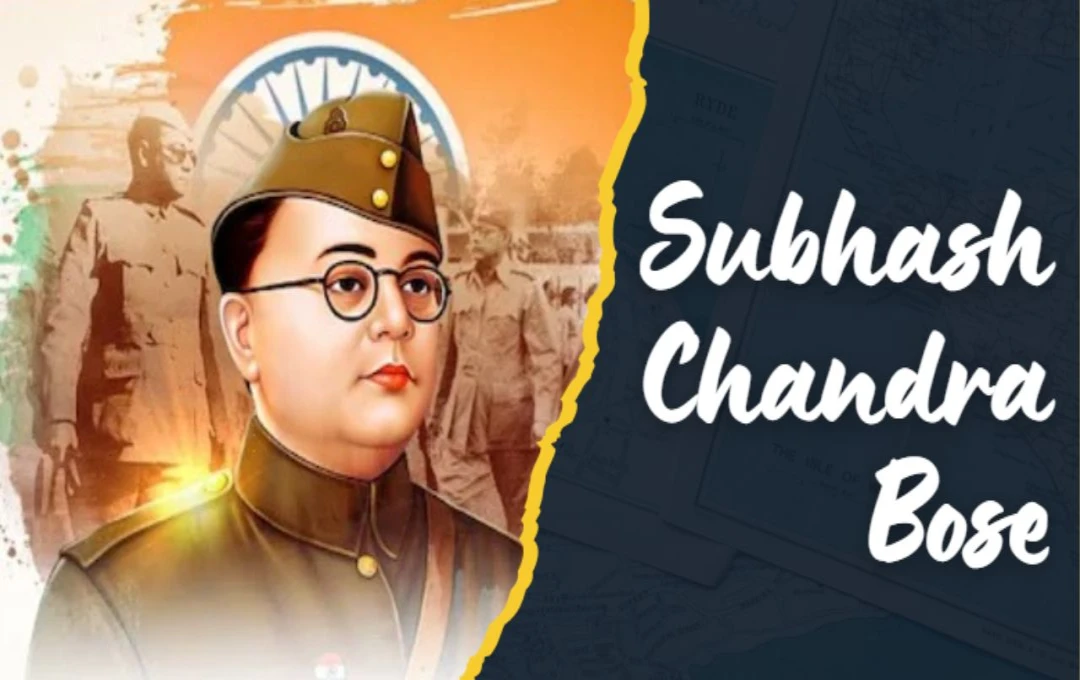Subhash Chandra Bose was a valiant leader of the Indian independence movement. His life is a symbol of courage, patriotism, and sacrifice. Netaji inspired the Indian people towards freedom and made significant contributions to the struggle for independence.
Subhash Chandra Bose: Known as Netaji, was one of the most influential and inspirational leaders of the Indian independence movement. His life was a symbol of courage, patriotism, and dedication. Netaji's ideology and work continue to inspire the younger generation, and his story of indomitable courage is famous worldwide.
Early Life and Family
Subhash Chandra Bose was born on January 23, 1897, in the city of Cuttack, Odisha, into a respected and educated family. His father, General Mohanlal Bose, was a senior officer, and his mother, Bhagirathi Devi, was highly disciplined in managing the household and the education of her children. From childhood, Subhash displayed clear leadership and discipline. His family taught him not only the importance of education but also the values of ethics, courage, and responsibility in life.
In his childhood, Subhash Chandra Bose received education in famous schools of Kolkata. His childhood was quite inspiring and disciplined. The family environment and higher education developed thoughtfulness and leadership skills in him.
Education and Early Career
Subhash Chandra Bose's educational life was extremely inspiring. He obtained a bachelor's degree in philosophy from Calcutta University. He believed that education should not only be for knowledge but also for national service and leadership.
He went to England and passed the Indian Civil Service examination, which was considered the highest career ladder in the British administration at that time. However, his passion for India's freedom prevented him from accepting the job. He had said that "Freedom is the greatest objective, and giving up any job for it is a matter of pride for me." This decision was the first great example of his courage and patriotism.
Beginning of Political Life
Subhash Chandra Bose began his political life by joining the Indian National Congress. He was influenced by Mahatma Gandhi's non-violent movement, but he believed that bold and active steps were also necessary to achieve independence.
In 1938 and 1939, he became the President of the Congress. During this time, he gave new energy and direction to the Congress. Under his leadership, the organization of young leaders and students was strengthened. He worked to spread patriotism and awareness of independence among the youth across the country.
Quit India Movement and Disagreement

During Gandhiji's Quit India Movement, Subhash Chandra Bose adopted the path of active opposition and revolutionary struggle. His views clearly indicated the need for armed struggle against British rule.
His disagreement within the Congress and his approach led him on a different path. He understood that the attainment of freedom was not possible through non-violence alone. This approach of his gave a new direction to the freedom struggle and awakened a sense of courage and self-reliance in the Indian public.
Formation of Azad Hind Fauj
Netaji Subhash Chandra Bose's greatest achievement was the formation of the Azad Hind Fauj (Indian National Army). During World War II, he obtained cooperation from Japan and Germany and prepared an armed force of Indian freedom fighters.
The Azad Hind Fauj not only waged war against British rule but also strengthened the spirit of self-reliance and patriotism among the Indian people. Under Netaji's leadership, the army participated in many important campaigns and gave global recognition to the Indian independence movement.
Netaji's Famous Slogan and Inspiration
Subhash Chandra Bose's famous slogan, "Give me blood, and I will give you freedom," is still a symbol of courage and patriotism. This slogan was visible not only in words but also in his actions and life.
His slogan increases the spirit of inspiration and patriotism among the youth. Netaji's leadership proves that the goal can be achieved with courage and determination even in difficult circumstances.
International Perspective and Cooperation

Subhash Chandra Bose took the Indian independence movement to the international level. He established strategic cooperation with Japan, Germany, and Italy. His objective was not only to make India independent but also to establish the Indian independence movement at the world level.
Netaji obtained support for Indian independence on international forums. Through his efforts, India's struggle for freedom became important to the global community. His diplomatic and military skills further strengthened the Indian independence movement.
Netaji's Leadership and Personality
Netaji's personality was exemplary. He was brave, disciplined, and dedicated. He believed that patriotism is proven not only by speeches but by actions.
His leadership and organizational skills set him apart from other leaders. He maintained courage and patience even in times of crisis. Netaji showed that true leadership lies in maintaining a steady vision and determination even in difficult circumstances.
Mysterious Death and Continued Inspiration
Subhash Chandra Bose's death occurred on August 18, 1945, in a plane crash in Taiwan, it is believed. However, there are still many mysteries and controversies surrounding his death. Despite this, his image of patriotism, courage, and leadership is still alive today. His ideals and thoughts remain an inspiration for freedom and justice in India and worldwide.
Subhash Chandra Bose's life is a unique example of courage, dedication, and patriotism. His leadership and vision gave a new direction to the Indian independence movement and gave global recognition to the fight for freedom. Netaji showed that any difficulty can be overcome with determination, discipline, and courage. His ideology and ideals continue to inspire the youth today. His life is a source of inspiration not only for India but for the whole world.










